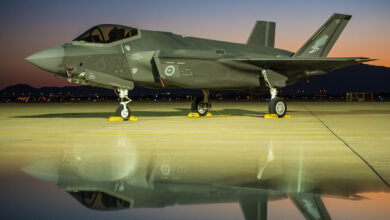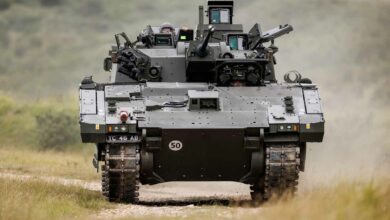Royal Air Force Flies First Sustainably-Fueled Military Transport Aircraft
The British Royal Air Force (RAF) has completed the world’s first sustainably-fueled military transporter flight, an important step toward achieving the force’s net zero target by 2040.
The RAF’s sole air-to-air refueling tanker, Voyager, conducted a 90-minute return flight over its Brize Norton station in Oxfordshire using 100 percent sustainable aviation fuel (SAF).
SAF is made from waste-based sustainable feedstocks such as used cooking oil. It is aimed at reducing lifecycle carbon emissions on average by up to 80 percent.
“Climate change is a transnational challenge that threatens our resilience, our security and our collective prosperity. That is why I have set the RAF the ambitious challenge of becoming the world’s first net-zero Air Force by 2040,” Air Staff Chief Mike Wigston said.
“The way we power our aircraft will be key to meeting that challenge and the RAF is already thinking about how we will operate beyond fossil fuels.”
The historic flight replicated an air-to-air refueling sortie, enhancing the operational capability of the air force.
The Royal Air Force and industry partners have carried out a world-first 100% sustainable fuel flight using a military aircraft of its size, and the first of any aircraft type in the UK.
Full story: https://t.co/7aTNnByEd2 pic.twitter.com/ZVL3xqjf05
— Royal Air Force (@RoyalAirForce) November 18, 2022
Voyager
The 58.8-meter (193-foot) tanker can deliver 60,000 kilograms (132,000 pounds) of fuel in five hours 500 nautical miles (926 kilometers/575 miles) from base.
Voyager can operate in a trail where it refuels fast jets over long ranges “while taking responsibility for the formation’s fuel and navigation.”
It can also work in a towline where the tanker circles a prescribed area waiting to refuel other aircraft.
Voyager is based at Brize Norton, home to the Air Force’s air-to-air refueling and strategic and tactical air transport forces.
Net Zero by 2040
The historic 90-minute test flight is part of recent RAF efforts to cut its carbon footprint while maintaining operational effectiveness.
The RAF aims to achieve net zero by 2040 by using sustainable and synthetic fuels for aircraft; upgrading equipment with hydrogen and electric alternatives; and developing electric aircraft, among others.
Last month, the air force and industry partner Zero Petroleum set a Guinness World record when the Ikarus C42 microlight aircraft completed a short flight using 15 liters (3.9 gallons) of synthetic gasoline.
Synthetic fuel is made by extracting hydrogen from water and carbon from atmospheric carbon dioxide, potentially saving 80 to 90 percent of carbon per flight, the RAF said.
The RAF’s Leeming Station in North Yorkshire has also been transformed into a “living laboratory” exploring sustainable technologies to reduce carbon emissions.
“Through the RAF’s pioneering spirit, expertise and partnership with UK industry, British science and engineering is leading the way in improving operational resilience and developing future operating capability in a climate-changed world,” Defence Minister Baroness Goldie said.












